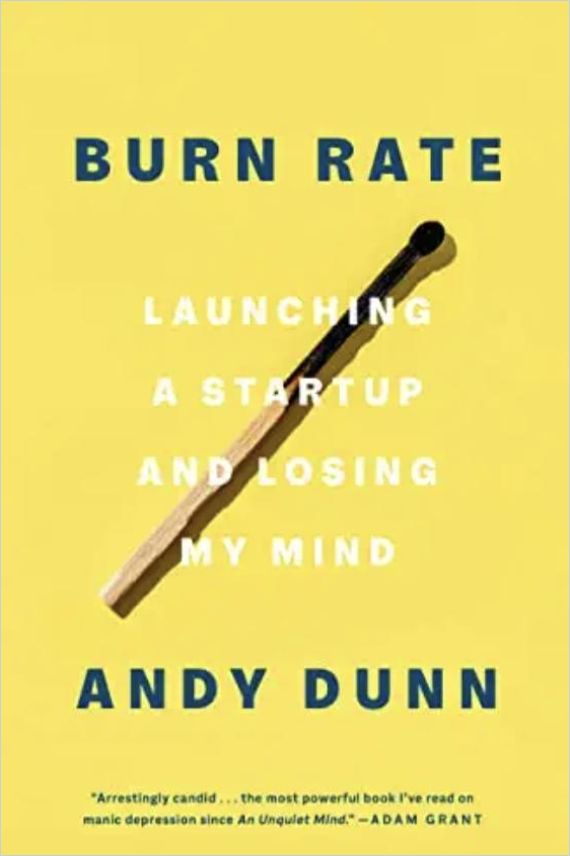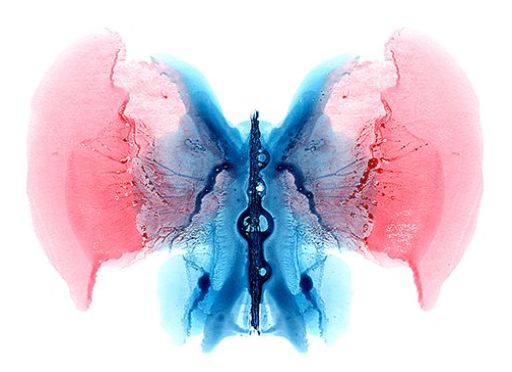Former Bonobos CEO Andy Dunn offers a candid, harrowing memoir of his struggle with bipolar disorder.

Confronting the Ghost
Bonobos co-founder Andy Dunn details how he came to accept his bipolar disorder diagnosis – his “Ghost” – while building his company, an online site for men’s clothes, and receiving wide public acclaim. Fortune magazine even chose Dunn as one of its stellar “40 under 40.” His frantic workload sometimes hid his mental instability – until it didn’t. Dunn’s breakdown changed his world and led to this brave, touching memoir.
“Ghost”
Andy Dunn’s family had a history of mental illness. Dunn’s paternal grandfather became a psychiatrist to treat his wife, Dunn’s mentally ill grandmother. When Dunn’s bipolar disorder emerged, it became another family secret.
Mental illness is one of the final taboos.Andy Dunn
As a college student on winter break from Northwestern University, Dunn ate psychedelic mushrooms. A week later, he showed signs of “ascending hypomania;” he wasn’t sleeping, eating or drinking water. A doctor diagnosed Dunn with “bipolar disorder type 1” and said the episode might be a “one-off” event. Research into bipolar disorder would have shown Dunn that, while bipolar disorder is treatable, it’s a “forever diagnosis.”
Dunn’s prescription “dulled” him, so he stopped taking it. Everyone in his life pretended the manic event hadn’t happened.
Bonobos
Dunn attended the Stanford Graduate School of Business. His roommate, Brian Spaly, created Bonobos – named for a “peace-loving,” amorous ape – which sold men’s chino and wool pants.
When Dunn became co-founder, CEO and 50% owner of Bonobos, he moved the company to New York City and set out to build a digital brand. In the first six months, Bonobos achieved $100,000 in sales. Unwittingly, Dunn embedded his own “biggest flaws” into the company. He trusted his intuition about people without checking references, ignored feelings of discomfort and avoided stressful conversations.
The next year, magazines and morning TV talk shows featured Bonobos, and sales reached $100,000 a month.
Strife
Spaly rejoined Bonobos as its chief creative officer. Bonobos had 20 employees and was burning through hundreds of thousands of dollars a month. Dunn blamed Spaly. As Dunn confronted Spaly over and over, his mental health became increasingly precarious.
My ‘crazy cards’ were on the table, but they didn’t change anything.Andy Dunn
A psychiatrist prescribed Lamictal for Dunn, but warned that if a rash appeared, he should stop taking it. The morning after his first dose, Dunn had a rash, and he abandoned the medication.
Dunn became Bonobos’ “biggest asset” and its “biggest liability.” The company was almost unable to pay its bills three times in 2010, but Dunn secured millions in venture capital.
Dunn told his staff members at a meeting they should “work harder” and give “more to the company.” After the meeting, the VP of engineering suggested that Dunn should “step aside.” Dunn refused, and an exodus of executives ensued.
Aware that he needed help, Dunn found an executive coach who had been a psychiatrist. After Dunn shared his history, the coach said Dunn didn’t seem bipolar and probably wasn’t. He repeated that feedback to his parents.
Within three years, Bonobos was selling pants at Nordstrom. The retail giant invested in Bonobos, and the company’s valuation reached $100 million.
Ups and Downs
Dunn was on an upswing. He made angel investments in new companies, but failed to account for the taxes he owed on his Bonobos stock sale. This stemmed from his “elevated mood,” but he understood its dangers only later.
Bryan Wolff, a Stanford classmate, joined Bonobos as CFO.Wolff said Dunn needed to “stop hiring” more people in the effort to build a “multi-brand technology platform.” Dunn fired him.Here, Dunn admits that he, not Spaly or Wolff, was the “unpartnerable person.”
In 2014, Dunn started a long-distance relationship with Manuela, who was selling her company in China. He sought a CEO to replace him at Bonobos, blaming his mood swings on the pressure of being an entrepreneur.
On a flight to Las Vegas, Dunn came to believe the plane would crash. That burst of fear marked the start of a “psychotic” episode. He delivered a “bizarre” speech and after two days without sleep, called his parents from his “messianic delusion world.” He flew to Chicago, leaving most of his possessions in Las Vegas. Once with his family, Dunn took a sleeping pill, which knocked him out for 12 hours.
Dunn felt he could talk to Manuela in his head and proposed to her telepathically. He changed his Facebook status to “engaged,” resulting in a confused call from Manuela. Dunn told her he’d made a mistake while updating his status. After recovering for a week, Dunn returned to New York.
Dunn went to China to be with Manuela. He didn’t get out of bed any day before 2 pm, and sometimes he slept 20 hours a day. He admitted how depressed he was, but she didn’t reject him.
Treatment
Manuela moved in with Dunn in New York and returned from a trip to find him in “the early stages of mania” after a week of late-night drinking. Dunn howled at the moon, broke a window, tore his clothes, and assaulted Manuela and her mother.
When he woke up, Dunn found himself in Bellevue Hospital’s psych ER unit, in restraints. Police charged him with misdemeanor assault and felony assault of a senior citizen. A judge released him, but banned him from seeing Manuela.
For me, controlled hypomania is when I am at my entrepreneurial best.Andy Dunn
Dunn’s judge agreed to put him under observation for six months before dismissing the case and sealing the court records. Manuela wrote, saying she loved him. Dunn met her and her mom for lunch. Her forgiveness overwhelmed him.
Dunn’s new psychiatrist put him back on Lamictal at a lower dose to avoid a reaction. Lamictal protected Dunn from depression and allowed him to experience emotion without becoming manic.
Walmart bought Bonobos for $310 million.Prior to the Walmart bid, Dunn asked Manuela to marry him. She did.
Inside the Ghost
Dunn tells of his entrepreneurial success and, in truly frightening detail, shows how his Ghost threatened to undo it. For three-quarters of the book, Dunn presents his Ghost as he regarded it for most of his life – a separate entity dedicated to his destruction. He bravely characterizes this view of his bipolar disorder as pure, destructive denial. Later in his saga, Dunn courageously recognizes the Ghost as an essential part of his nature and takes steps to live with it. This extraordinary memoir will especially appeal to and comfort those who are dealing with mental health issues in a world that seeks to deny them recognition and support.






